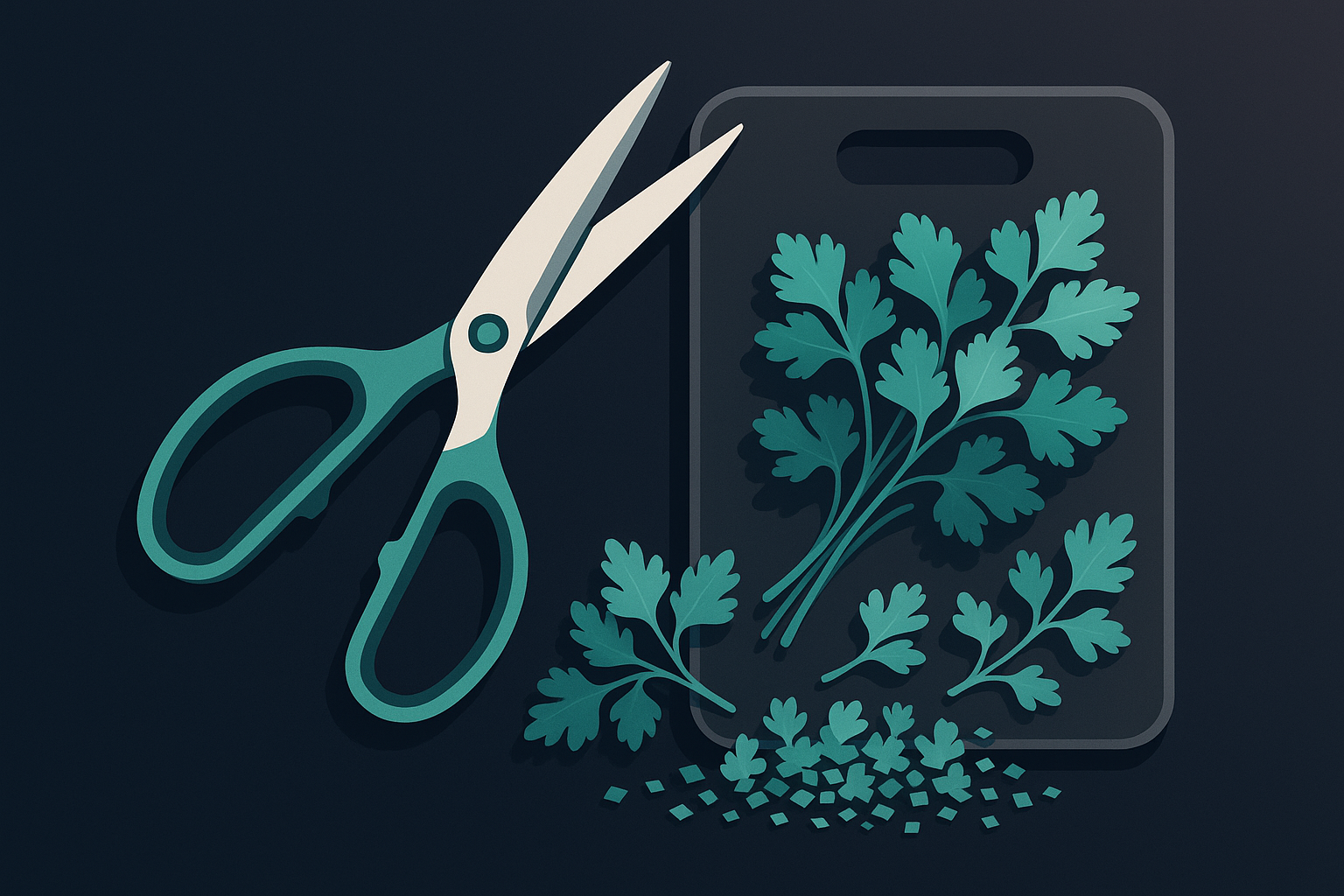The Humble Kitchen Scissors: An Unexpected Lesson in Transformation
Let’s talk about kitchen scissors. Yes, you read that right. Scissors—the tool that, until about fifteen minutes ago, you probably relegated to the “junk drawer” of your mind, somewhere between rubber bands and that one mysterious key. But if you take a look at Kitchen Scissors, you’ll see that this once-overlooked implement is quietly—almost subversively—reshaping our relationship with the kitchen. And, if you tilt your head and squint a little, you’ll notice some uncanny parallels with AI’s trajectory in ecommerce and content creation.
Utility That’s Hiding in Plain Sight
Kitchen scissors are not new. They’re not glitzy. They don’t have a glimmering touchscreen, nor do they beep when you use them incorrectly. In fact, that’s the point. The magic of kitchen scissors is that they’re a tool designed to do one thing well—cut stuff—without fuss or fanfare. They slice through chicken cartilage, open stubborn packaging, and snip fresh herbs with a satisfying snick. They’re utilitarian, multipurpose, and, for the longest time, criminally underestimated.
Sound familiar? That’s the trajectory of most transformative technology. When we first get our hands on something new—be it a pair of scissors or generative AI—we tend to underestimate its everyday utility, focusing instead on what it can’t do, rather than what it quietly excels at. Kitchen scissors are the unsung heroes of culinary efficiency, just as AI is slowly becoming the not-so-secret weapon for marketers, podcasters, and entrepreneurs looking to carve out time and sanity in their daily workflows.
From “Why Bother?” to “Can’t Live Without”
According to the Kitchen Scissors article, there’s a kind of enlightenment that occurs the moment you realize how versatile these shears really are. Snip, snip, and suddenly you’re prepping an entire chicken in under five minutes. Or opening vacuum-sealed packaging without risking a trip to the ER.
This moment of realization is not unlike the first time you hand an AI assistant a tedious podcast transcript and watch it spit out timestamps, highlights, and summaries in, well, less time than it takes to brew a coffee. The transformation isn’t about replacing the chef (or the host)—it’s about amplifying what they can do with less friction.
Tech Adoption: The Scissors Paradox
Why do we ignore tools that make our lives easier? The answer, I suspect, is a mix of habit, skepticism, and a dash of stubbornness. Kitchen scissors, like AI, challenge the status quo. They ask us to trust a new workflow, to cut (pun intended) away from the familiar, and to embrace a little more efficiency.
And yet, once adopted, these tools become indispensable. The article notes that kitchen scissors have quietly become the backbone of efficient meal prep for home cooks and professionals alike. Similarly, AI-powered editing, summarization, and even guest research are moving from “nice-to-have” to “can’t-live-without” in the podcasting world.
Actionable Takeaways for Podcast Entrepreneurs
- Audit your workflow. What repetitive tasks are you doing manually? Chances are, there’s a “kitchen scissors” equivalent—some small, powerful tool or AI service that could shave hours off your process.
- Don’t dismiss the basics. Just because a tool isn’t flashy doesn’t mean it’s not transformative. Sometimes, the most impactful upgrades are hiding at the bottom of your digital drawer.
- Experiment with intent. Try introducing one new tool or process at a time. Give it a real chance—like prepping a whole meal with scissors instead of a chef’s knife. You might discover inefficiencies you never noticed.
- Share your findings. The best podcasts are built on stories of discovery and transformation. If you find a tool (or workflow) that changes the game, talk about it. Your audience is likely fighting the same battles you are.
Kitchen scissors remind us that transformation rarely arrives with a parade. Sometimes, it sits quietly in the drawer, waiting for us to pick it up and snip our way to something better. The same is true for AI and every other seemingly “simple” tool that, when used with intention, makes us a little more superhuman at what we do.
Checkout ProductScope AI’s Studio (and get 200 free studio credits)

